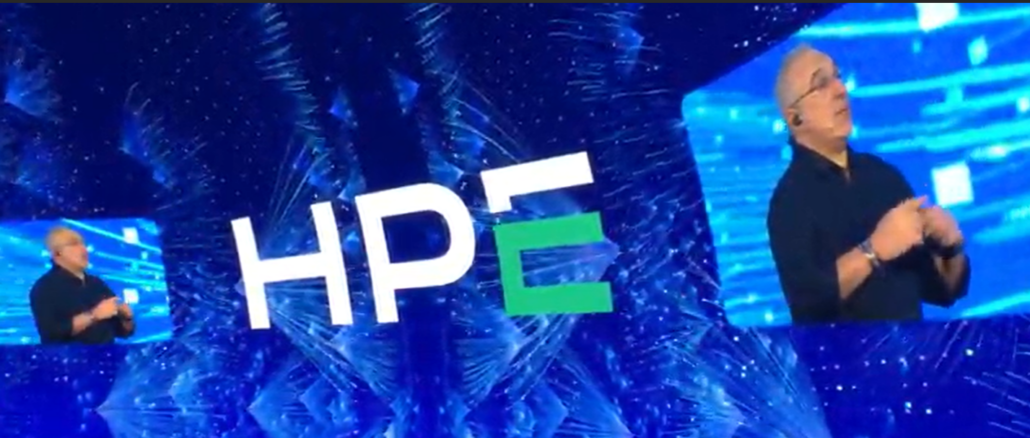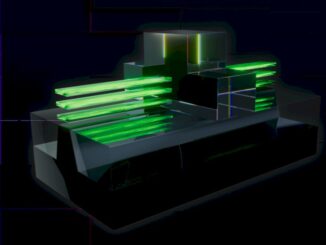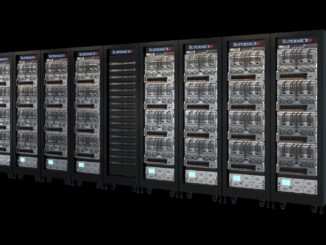
Hewlett Packard Enterprise has kept a steady drumbeat for much of the year as it looks to position itself as the go-to IT hardware and software vendor for the rapidly expanding AI market, which has grown from chatbots to AI agents in under three years.
To that end, HPE is leaning heavily on its GreenLake hybrid cloud platform, growing software lineup, and vast hardware portfolio in hopes of gaining leverage over rivals like Dell and Cisco Systems that are all trying to come out on top in the mad AI scramble.
For HPE, the past several months have included deepening its integrations with Nvidia through expanded support for its Private Cloud AI – a cloud-based AI factory co-developed with Nvidia – growing its lineup of Aruba Networking switches and access points, introducing enhancements to its Alletra and StoreOnce storage portfolios, rolling out the latest Intel-based ProLiant G12 servers to complement the Nvidia-based systems released last year, bolstering its high-end NonStop servers with the latest Intel processors, adding zero-trust and other security features to its Aruba Networking and GreenLake cloud offerings, and spreading the wealth of its Morpheus, OpsRamp, and Zerto software throughout the portfolio.
The company also plans to do this and more with fewer people, with Antonio Neri, HPE’s president and chief executive officer, telling financial analysts of plans to cut the workforce from 61,000 earlier to about 58,000, due to some degree to the vendor’s ability to get work done via AI.
Feeding The HPE Beast
HPE is announcing more enhancements across its portfolio this week at its HPE Discover 2025 show in Las Vegas, with its eyes steadily on the feeding the needs of enterprise AI workloads and the organizations running them.
“AI has introduced new requirements,” Neri said during his keynote Tuesday. “It demands performance and scale that most environments were not designed for. As you digitize and automate your enterprise, these are the challenges we hear from you and they are exactly what our strategy and innovation address.”
The CEO ticked off the challenges enterprises face when trying to address modern cloud and AI workloads by using legacy IT, noting the growing data sovereignty and regulatory demands that put pressure on organizations to more closely manage their data, including where it’s stored and how it’s access. They’re also dealing with rising cloud and virtualization costs, the latter driven in large part by Broadcom’s $61 billion acquisition of VMware in late 2023 and subsequent licensing changes and price increases.
Calling All Agents
A lot of what HPE wants to do involves adding AI agents – small software programs that can autonomously to perform tasks and return results with little if any human intervention – to products and services. That includes its new GreenLake Intelligence agentic AI framework for delivering AI agents to almost all areas of the infrastructure.
Varma Kunaparaju, senior vice president and general manager of HPE’s OpsRamp software and cloud platforms, told journalists during a prebriefing before the event that AIOps has evolved over the past several years, from ingesting large amounts of data and making sense of it to, with the rise of chatbots, sorting through dashboards and scripts and answering queries in natural language.
“The third part of the journey in our mind is all about agentic AI and how to use that to transform operations, not just optimizing them,” said Kunaparaju, who as co-founder and chief executive officer at OpsRamp until HPE bought it in 2023. “We are building agentic AI grounded in full-stack context from real telemetry. The real telemetry that is coming for us is from the OpsRamp observability, the individual domain-specific technologies that we have in compute, storage, and network. These systems are powered by additional language models that include mixture of domain specific experts that will ultimately result in planning, orchestrating and root-cause analysis for proactive mitigation.”
Adding Intelligence To GreenLake
Neri said GreenLake Intelligence is built on a “mesh of intelligent agents” powered by domain-specific large language models (LLMs) trained more than 3 trillion parameters of data from HPE logs, configurations, telemetry, and support data. It also supports Model Context Protocol (MCP) to allow LLMs to pull in external data. .The integration of the cross-domain agents is enabled by GreenLake’s role in unifying an organization’s cloud environment, he said.
 “Need help identifying and resolving network issues before they impact users? Your networking agent takes the lead,” Neri said. “Need more storage capacity or better IOPS? Your storage agent will take care of it. Want to get your cloud costs under control? Your FinOps agent will help you right-size and consolidate. Want to run more efficient, sustainable operations? Your GreenOps agent flags inefficiencies across your entire estate and recommends smarter configurations.”
“Need help identifying and resolving network issues before they impact users? Your networking agent takes the lead,” Neri said. “Need more storage capacity or better IOPS? Your storage agent will take care of it. Want to get your cloud costs under control? Your FinOps agent will help you right-size and consolidate. Want to run more efficient, sustainable operations? Your GreenOps agent flags inefficiencies across your entire estate and recommends smarter configurations.”
Kunaparaju said GreenLake Intelligence “is a collection of agentic systems designed to operate across the HPE full-stack as well as multi-vendor, multi-cloud hybrid environments. The systems gather live telemetry from the customer’s environment using Model Context Protocols. They combine the data with HPE’s deep domain knowledge across compute, networking, storage, and full software application stack.”
AI And Infrastructure
Regarding infrastructure, HPE is bringing MCP servers to connect GreenLake Intelligence to its Alletra Storage MP X10000, a scale-out object storage system that, when linked to GreenLake Intelligence, will help developers and administrators to use GreenLake Copilot to manage data and operations. At Discover, HPE is previewing the support MCP servers built into X10000, which will come in the second half of the year. With networking, HPE is unveiling an agentic mesh technology into its Aruba Networking Central cloud-based network management tool to enhance root-cause analysis and remediation for network and service issues. The agentic mesh will be available in the third quarter.
“Paired with a networking copilot, these AI agents leverage a collection of reasoning models context-tuned for security-first, AI-powered networking,” Neri said. “The result is a network that thinks for itself, autonomously identifying problems, offering solutions, and getting smarter over time.”
HPE in January announced plans to buy rival Juniper Networks for $14 billion, with Neri saying that it will “further position HPE to offer a comprehensive, modern, secure and AI-driven networking portfolio to deliver on the promise of hybrid cloud and AI.”
Managing The Cloud
HPE also is rolling out its CloudOps Software suite of tools created by bringing together OpsRamp for observability, Zerto (workload protection), and Morpheus (workload orchestration). Enterprises can use them as standalone products or as part of CloudOps suite for multi-cloud environments.
“With these three software packages, we have seen tremendous uptake in the market and we have also seen a need to package them together in a simple-to-consume software package where customers can sign up for a number of a size of the software package but they don’t have to determine how much of each they need, which allows them flexibility in planning over the next number of years,” Fidelma Russo, executive vice president, general manager of hybrid cloud, and chief technology officer, said during the prebrief.
HPE is enhancing its Nvidia AI Computing by HPE lineup of AI factories that are powered by Nvidia’s Blackwell GPUs and include HPE’s Private Cloud AI factory, which will include ProLiant Gen12 servers, a federated architecture to ensure resource pooling to support new GPUs and other resources from Nvidia, multi-tenancy capabilities, and management for air-gapped systems.
New pre-integrated and composable AI factories come with Morpheus Enterprise software for a unified control plane and are targeting such emerging AI areas as sovereign AI, model builders, and service providers – including the emerging neoclouds, which support the compute and other needs of AI and HPC operations, according to Trish Damkroger, senior vice president and general manager of HPC and infrastructure solutions.
Damkroger said her focus is on “those individuals or companies that are doing those large language models and they need robust, reliable infrastructure. We’re seeing growing organizations that need this large-scale infrastructure to support the strong compute and scaling requirements of the growing AI training needs.”
The offerings will include not only the Alletra Storage MP X10000 systems but also HPE’s new Compute XD690 high-end server that includes with Nvidia Blackwell Ultra GPUs. Along with HPE’s storage, the servers also come with Aruba switches and the latest accelerators from AMD as well as Nvidia, she said. In addition, there is HPE’s direct liquid cooling system that Damkroger said can reduce power consumption by as much as 90 percent over traditional air-cooled systems.









Be the first to comment